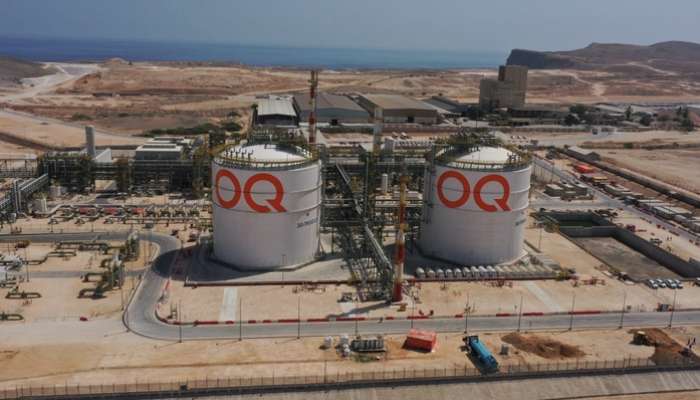
Muscat: OQ, the globally integrated energy group, has said that its expenditure on goods and services reached approximately $974.07 million in the third quarter of 2023. Of this, $753.11 million was allocated to goods and services through local suppliers, resulting in $314.17 million being retained as In-Country Value (ICV).
The group has reported spending a total of $172.53 million on small and medium-sized enterprises (SMEs) by the third quarter of this year. This includes a significant amount of $56.99 million explicitly allocated for SMEs holding the Riyada Card.
This expenditure aligns with the group’s strategic focus on enhancing its ICV contribution, in tandem with government efforts and the objectives of Oman Vision 2040, demonstrating a steadfast commitment to invest and support local markets, goods and SMEs.
Recognising the significance of supporting Omani Goods, OQ has given special attention to goods made in Oman in its procurement policies. This includes offering up to a 10 percent price preference for Omani goods and specifically targeting Omani goods in some contracts and procurements. As a result, spending on goods manufactured in the Sultanate of Oman reached approximately $122.41 million.
Furthering its dedication to local industry, OQ has launched initiatives aimed at industry localisation, notably the recently signed agreements to establish projects in the Ladayn Polymer Park. These projects are expected to contribute an ICV of around $46 million annually.
Eng. Mabrook bin Hamed Al Siyabi, General Manager of In-Country Value at OQ, said, “Our focus at OQ is set on maximising our ICV contribution across all our projects and activities. We recognise the pivotal role local businesses play in building our national economy and driving sustainability. To this end, we invest in programmes that boost the growth and development of local businesses and create opportunities for the supply of local products.”
“Our commitment extends to sourcing goods and services from SMEs and locally registered suppliers, creating job opportunities, and fostering skill development and innovation,” he added.
Al Siyabi further elaborated that ICV represents the total expenditure retained within the country, contributing to business development, human capacity building, and productivity stimulation in the national economy. To this end, OQ has established a robust framework aimed at maximising ICV. Key components of this strategy include the formation of a dedicated ICV unit, the implementation of comprehensive group-wide performance metrics to monitor ICV, and the integration of ICV requirements into procurement policies. Furthermore, the group ensures that all tenders are transparently displayed on the e-procurement platform (Tawreed), with ICV being a primary criterion in bid evaluations. The effectiveness of these strategies is continuously assessed through a specialised ICV monitoring and reporting platform.
Emphasising the role of employment, training, and scholarships in OQ’s ICV initiatives, Al Siyabi revealed that the group’s Omanisation rate reached about 84 percent by the end of 2022.
He further explained that in the training sector, OQ has invested in developing 800 leaders through the ‘Masar’ programme, to foster leadership to guide the group through its transformation phase.
OQ’s commitment to ICV is also evident in the group’s spending trend over the past three years. In 2022, OQ spent approximately $1,016.86 million in goods and services that supported local businesses, a significant portion of its total goods and services expenditure of $1,385.55 million. About $453.52 million was ICV retained value, comprising 32.7 percent of the ICV index. The previous year, 2021, saw OQ’s local spending reach about $931 million, with approximately $392 million as ICV retained value, accounting for 29 percent of the ICV index. In 2020, the group’s local expenditure was around $712 million, with $282 million as ICV retained value, contributing nearly 28 percent to the ICV index.
Al Siyabi revealed that around 2,200 SMEs are now registered on Tawreed, OQ’s e-tendering system, including 617 enterprises holding the Riyada Card. OQ is committed to bolstering SME growth and participation in its supply chain, as evidenced by initiatives like earmarking 10 percent of its total procurement spending for SMEs. This move is part of a broader strategy to align with government economic incentive programmes and enhance OQ’s procurement and contracting policies.
On streamlining procurement procedures and practices for Riyada Card holders, Mabrouk Al Siyabi added, “OQ has initiated several measures to support these enterprises, including prioritising them for purchase orders and contracts for goods and services below OMR10,000. Additionally, for contracts exceeding this value but not surpassing OMR50,000, OQ offers a preferential pricing advantage of up to 10 percent. Moreover, OQ has allocated 10 percent of its total procurement spending specifically for SMEs and commits to a swift payment policy, settling invoices within 15 days. OQ also waives tender fees and initial guarantee requirements for these enterprises, thereby enhancing SMEs’ ease of doing business within its supply chain”.
Among its ICV initiatives, OQ has also launched a Supplier Development Programme to empower local suppliers and manufacturers in the energy sector. This programme mainly focuses on local SMEs and Riyada Card holders, offering them opportunities for growth and
development.
Additionally, OQ has implemented a unique programme restricting specific tenders entirely to SMEs and Riyada Card holders. This includes allocating a percentage of business exclusively to these groups and designating particular scopes of work for them. OQ also supports start-ups through research and innovation, encouraging creative solutions to challenges in the sector and leveraging modern technologies. These efforts collectively reflect OQ’s dedication to nurturing a dynamic, inclusive business landscape, promoting local entrepreneurship and pioneering innovation in the energy sector.